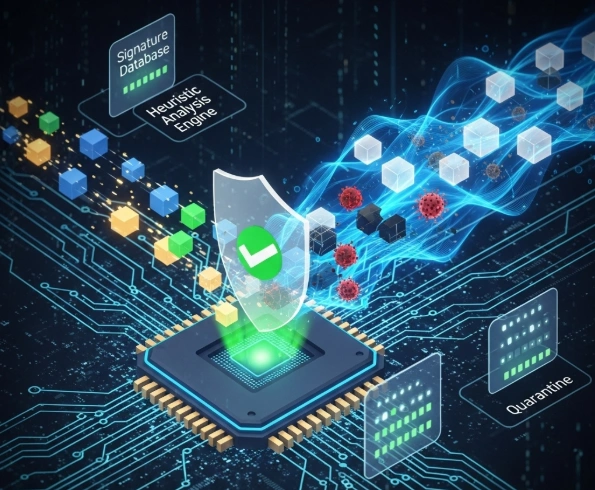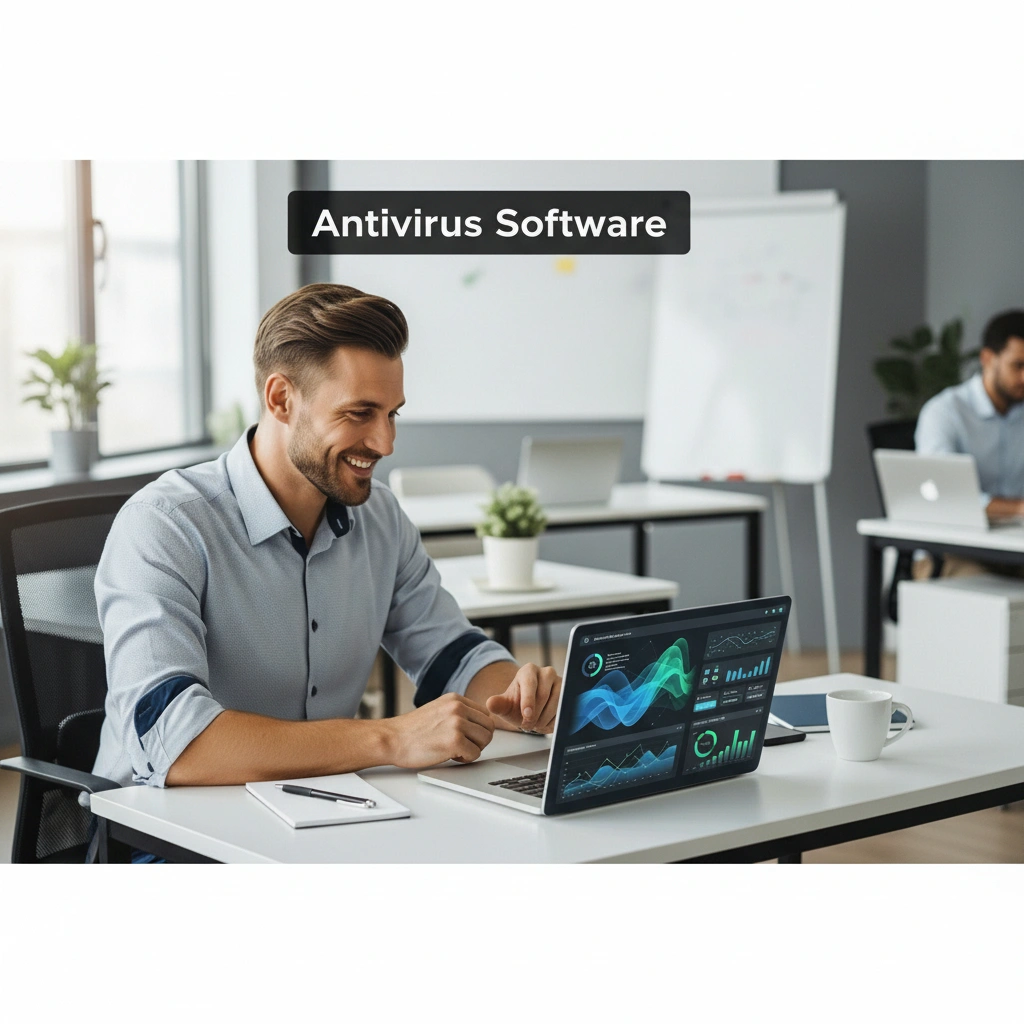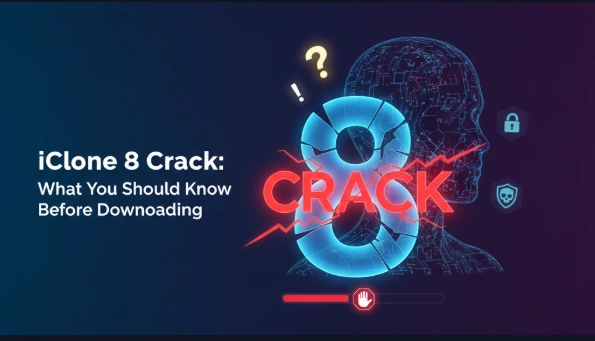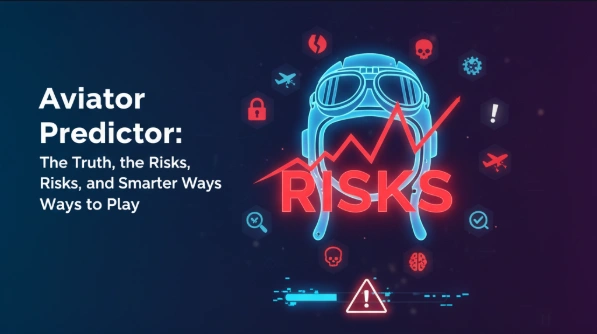Why Antivirus Software Still Matters in 2025
Cyber threats don’t sleep. Every day, new scams, malware, and phishing attacks try to steal personal and financial data. Antivirus software is your first line of defense—it’s not just about stopping viruses anymore. Modern antivirus tools act as all-in-one security systems designed to protect your devices, your data, and your identity.
Core Antivirus Features You Shouldn’t Ignore
Not all antivirus programs are equal. If you’re choosing one today, these are the features that matter most:
- Real-Time Protection – Instantly blocks malware before it causes damage.
- Ransomware Shield – Prevents hackers from encrypting your files and demanding payment.
- Firewall – Acts as a barrier against intruders trying to access your system.
- Web & Phishing Protection – Stops fake websites and dangerous downloads.
- Password Manager – Keeps login credentials safe in an encrypted vault.
- VPN – Protects your online activity and keeps browsing private.
- Safe Banking/Shopping Browser – Extra-secure mode for money-related transactions.
- Identity Theft Monitoring – Alerts you if your information appears in leaks.
- Parental Controls – Filters harmful sites and manages children’s screen time.
- Performance Boosters – Cleans junk files and speeds up devices.
- Webcam & Mic Protection – Stops apps from spying without permission.
How Antivirus Software Detects Threats
Antivirus programs rely on layered detection methods:
- Signature-Based Detection – Matches files against known malware.
- Behavior Monitoring – Flags programs acting suspiciously.
- Heuristic Analysis – Identifies new, unknown threats by analyzing code patterns.
This combination improves accuracy and helps catch zero-day attacks—brand-new threats not yet listed in databases.
Different Types of Antivirus
Depending on your needs, you’ll find:
- Basic Antivirus – Covers malware protection only.
- Internet Security Suites – Bundles firewalls, VPNs, and more.
- Cloud-Based Antivirus – Lightweight scanning powered by cloud servers.
- Business/Enterprise Antivirus – Centralized protection for multiple users.
- Mobile Antivirus – Protects smartphones from app-based threats and theft.
Choosing the Right Antivirus: Key Considerations

Before you decide, check for:
- Compatibility – Works across Windows, macOS, iOS, and Android?
- System Impact – Lightweight performance vs. slowing down your device.
- Ease of Use – Simple dashboard and clear settings.
- Update Frequency – Regular updates are essential.
- Customer Support – Access to real help when needed.
| Feature | Free Antivirus | Premium Antivirus |
|---|---|---|
| Real-Time Protection | Basic | Advanced |
| Ransomware Defense | No | Yes |
| Firewall | No | Yes |
| Web/Phishing Protection | Limited | Strong |
| VPN | No | Yes |
| Password Manager | No | Yes |
| Identity Monitoring | No | Yes |
| Parental Controls | No | Yes |
Advantages and Limitations of Antivirus
Pros:
- Real-time defense against multiple threats.
- Advanced tools like VPNs, firewalls, and parental controls.
- Peace of mind when browsing, shopping, or banking online.
Cons:
- Some programs slow down older devices.
- Occasional false alarms (safe files flagged as harmful).
- No tool guarantees 100% protection.
Future Trends in Antivirus Program
Antivirus tools are evolving rapidly. Expect to see:
- AI-driven security – Smarter, faster detection.
- Cloud-first scanning – Faster updates and minimal device strain.
- IoT Security – Protecting smart home devices like cameras and voice assistants.
- Deeper Privacy Monitoring – Tracking how personal data is used and shared.
FAQS
1. Do I really need antivirus software in 2025?
Yes. While operating systems have built-in security, standalone antivirus offers stronger, multi-layered protection against phishing, ransomware, and identity theft.
2. Is free antivirus enough?
Free antivirus covers basic malware protection but usually lacks advanced tools like ransomware defense, VPNs, or identity monitoring. Paid versions are better for complete security.
3. Will antivirus slow down my computer?
Some heavy programs may affect performance, but many modern antivirus solutions are optimized to run in the background with minimal impact.
4. Can antivirus stop hackers completely?
No single tool can block every attack. Antivirus greatly reduces risks but should be combined with safe browsing habits, strong passwords, and software updates.
5. What’s the difference between antivirus and internet security suites?
Antivirus focuses on malware protection, while internet security suites bundle in extra tools like firewalls, VPNs, password managers, and parental controls.
6. Do smartphones need antivirus?
Yes, especially Android devices. Mobile antivirus helps block malicious apps, phishing sites, and even includes anti-theft features.
Conclusion
At the end of the day, antivirus software isn’t about fear—it’s about peace of mind. Whether you just want basic malware protection or a full security suite, the right antivirus can make your digital life a lot safer (and less stressful).
So, the real question is: do you want your devices to be a soft target, or do you want them locked down with the same seriousness you give your home’s front door?







